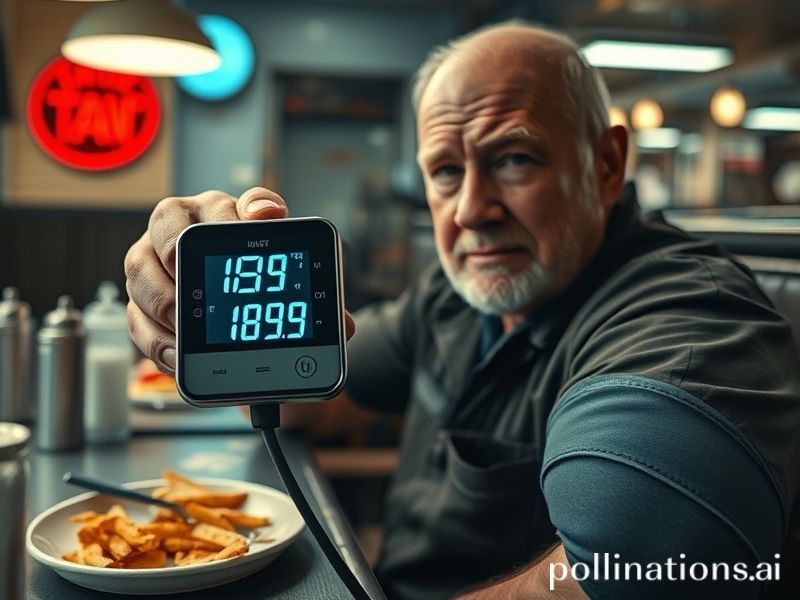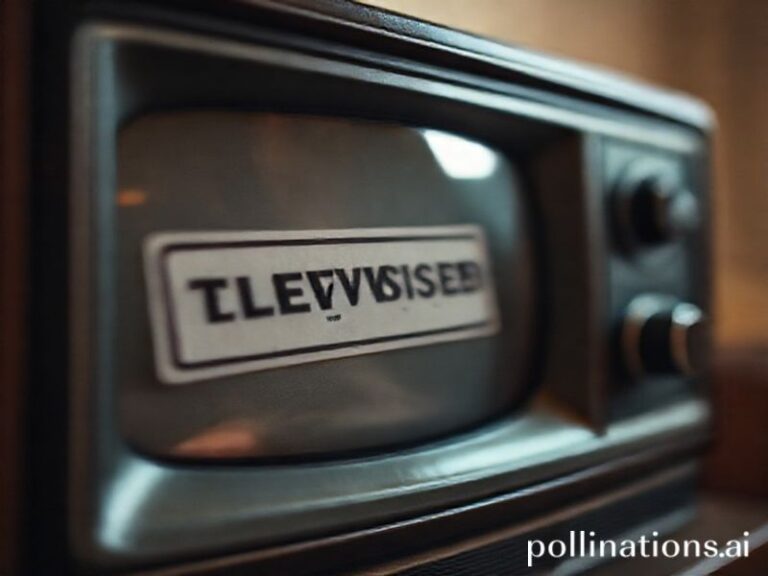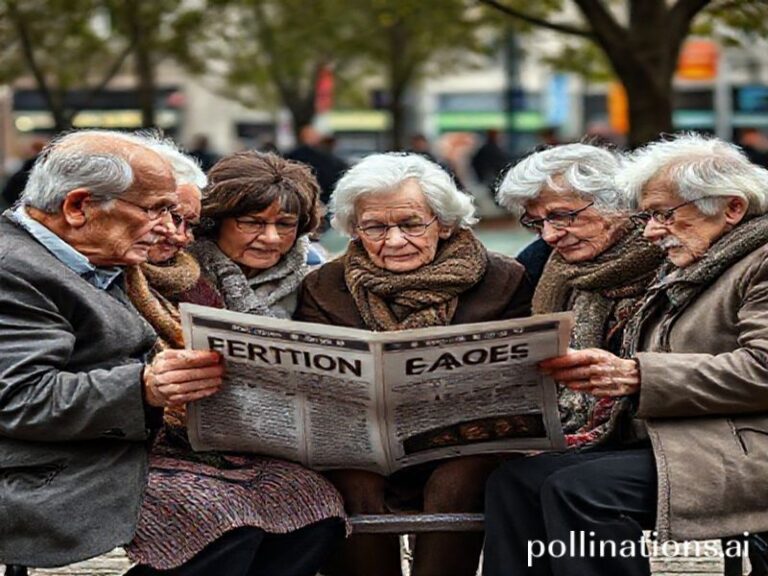Planet Pressure Cooker: How Hypertension Became Humanity’s Quietest Global Arms Race
Hypertension: The World’s Quietest Arms Race
by R. J. Valente, Senior Correspondent, Dave’s Locker
GENEVA—While diplomats trade barbs over missile trajectories in Eastern Europe, a far stealthier escalation is taking place inside every third adult on the planet. Hypertension—blood pressure high enough to power a small espresso machine—now affects 1.28 billion people, according to the WHO’s latest headcount, or what epidemiologists politely call a “global prevalence.” Translation: humanity has managed to weaponize its own arteries without firing a single shot.
The numbers are almost patriotic in their uniformity. From Lagos to Lima, roughly one in three adults is marching around with systolic pressure north of 140 mmHg, a figure that sounds more like a middling chess rating than a medical crisis. The rich world discovered hypertension decades ago and promptly monetized it: glossy ads for ACE inhibitors during Super Bowl halftime, boutique “salt rooms” in Beverly Hills where the worried well inhale Himalayan crystals at $75 a breath. Meanwhile, the poorer three-quarters of humanity discovered it en masse only after urbanization delivered the holy trinity of stress, processed noodles, and jobs that require sitting still long enough to watch entire seasons of prestige television.
Sub-Saharan Africa, ever the overachiever in grim statistics, now reports hypertension prevalence rates that rival the U.S. Deep South’s—except without the Deep South’s charming abundance of cardiologists. Nairobi’s newest private hospital boasts a “24-hour BP Lounge” with mood lighting and artisanal beet juice. Down the road in Kibera, the same diagnosis is delivered in under forty seconds by a nurse wielding a cuff older than TikTok. Equity, like oat milk, is still an acquired taste.
Asia presents its own ironic subplot. Japan, birthplace of miso and zen, has tamed salt intake so effectively that its elderly now live long enough to complain about their pensions. Next door in China, economic miracle broth has congealed into 245 million hypertensive citizens—enough to populate a medium-sized continent, or three Germanys. Beijing’s response: state-sponsored Tai Chi sessions in public parks at dawn, broadcast on loudspeakers loud enough to raise your blood pressure anyway.
Europe, never one to miss a bureaucratic flourish, has declared May 17 “World Hypertension Day,” presumably because the EU calendar was already chock-full of lesser observances like “European Week of Bees and Pollinators.” Brussels is subsidizing Mediterranean-diet cooking classes in former coal towns where the only olives anyone saw prior were in martinis. Progress is incremental; the pastries remain excellent.
Latin America, meanwhile, has turned hypertension into a family affair. In Mexico, where Coca-Cola is practically a baptismal font, abuela’s pressure spikes every time the gas bill arrives. Governments launch earnest campaigns—swap soda for water, walk 10,000 steps, try not to get kidnapped on the way to the park—then watch helplessly as inflation makes salad three times pricier than a michelada.
The Middle East counters with architectural solutions: whole cities designed to be walked indoors, air-conditioned to a crisp 19°C, ensuring citizens never break a sweat except while paying for parking. Dubai’s latest skyscraper includes, on floor 127, a clinic that monitors your BP in real time via elevator handrails. The catch: you must first survive the elevator music.
So why does any of this matter beyond the obvious risk of sudden, headline-worthy demise? Because hypertension is the ultimate geopolitical spoiler. A workforce stroking out at 45 doesn’t pay taxes; armies staffed by soldiers on four kinds of antihypertensives don’t march far. The World Bank quietly estimates that uncontrolled high blood pressure lops 10 percent off GDP growth in low-income nations—roughly the same hit as a minor civil war, only quieter and with better catered pharma launches.
The remedy is tediously simple: less salt, more vegetables, the occasional constitutional around the block instead of around the comment section. Yet the global adherence rate hovers around 14 percent, which is also, coincidentally, the approval rating of most parliaments. Perhaps that’s the darkest joke of all: humanity can land a rover on Mars but can’t convince itself to eat a carrot without dipping it in ranch.
In the end, hypertension remains the perfect post-modern ailment—self-inflicted, largely preventable, and absolutely everywhere. It is the silent drumbeat behind every Zoom meeting, every traffic jam, every election night. And while we bicker over tariffs and TikTok, our capillaries are voting with their valves, one constricted millimetre at a time.
Sleep tight.







